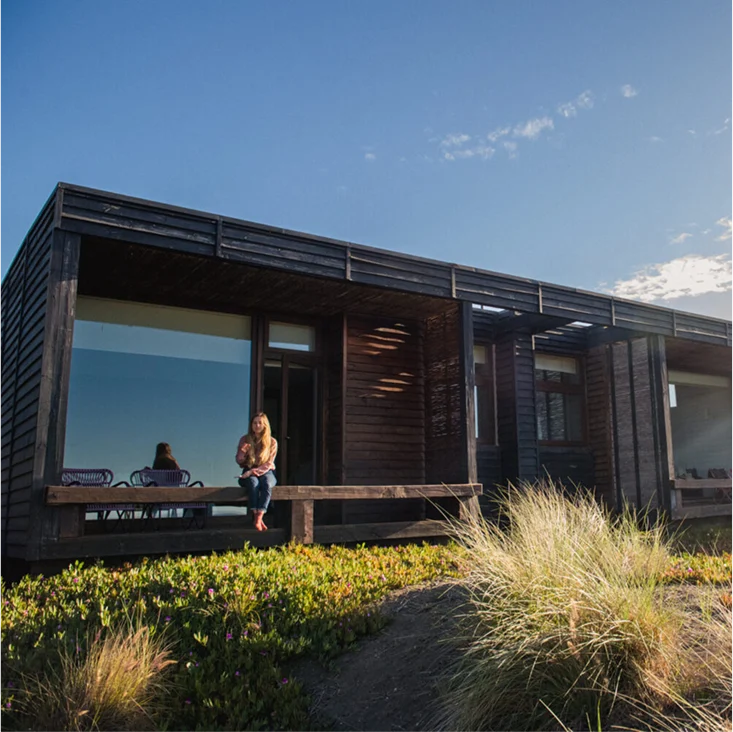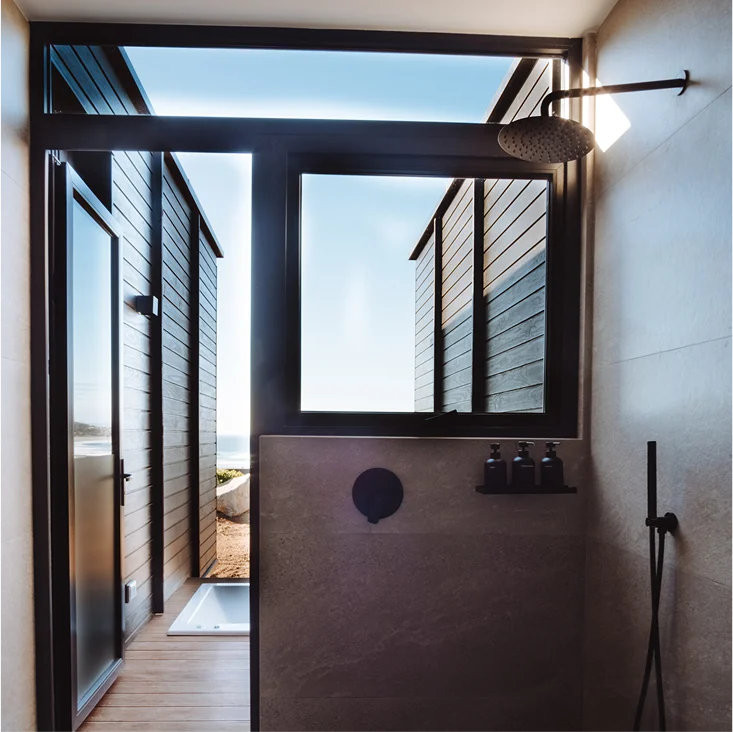The hotel has a bio‑intensive garden developed through regenerative agricultural practices. This method does not use chemical fertilizers or traditional pesticides, instead opting for crop rotation to enhance soil fertility.
Pest control is carried out biologically, making use of flowers and manual techniques such as composting. This cultivation method ensures the production of high-quality vegetables with exceptional nutritional value, providing healthy and completely natural food.
At harvest time, the products are distributed to several local restaurants in Pichilemu, including the Hotel, and the remaining produce is sold in baskets to families in the area.


The holistic combination of agriculture, livestock, and forestry is once again regarded as the backbone of a sustainable food system, making it possible to feed the entire world population in a healthy way without depleting the natural resources at our disposal.
Modern agricultural processes have led to the loss of soil fertility, mainly due to the decrease in microbiological presence, minerals, and organic matter. Regenerative agriculture begins by returning these dynamic components to the soil as the foundation of a sustainable farming and livestock system.


The goal of regenerative agriculture is to make farming and livestock operations profitable by reducing costs and harnessing the amazing symbiotic relationships between animals, plants, and soil life. The expected result is healthy and nutritious food at affordable prices for everyone. A population with good health and energy will be able to fully develop its human potential and drive the change our planet needs.
Restores the potential of ecosystem services.
Drastically reduces variable costs and increases yields.
Creates local employment and wealth, and brings people together around a new vision.






